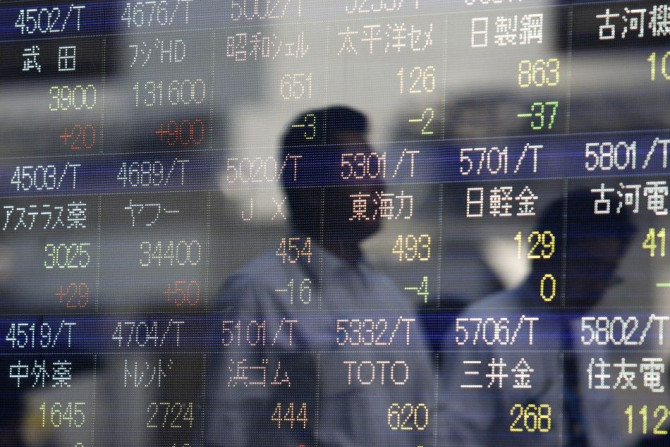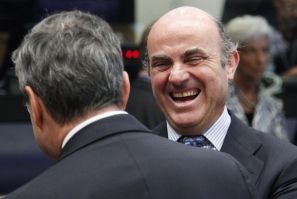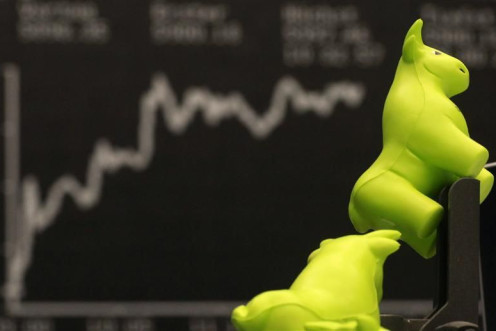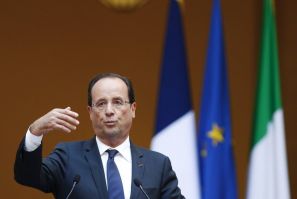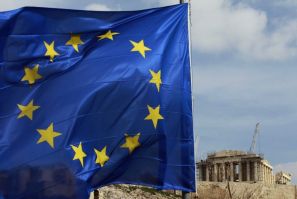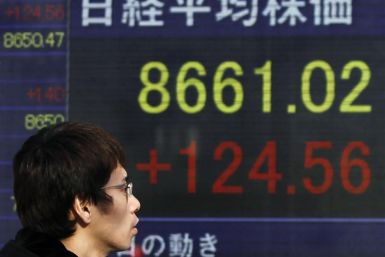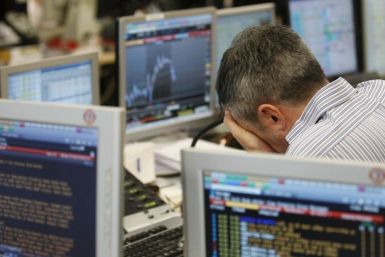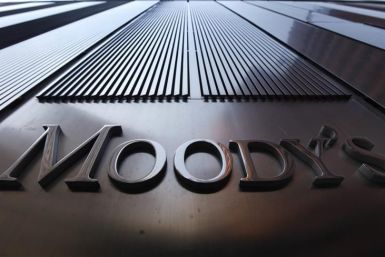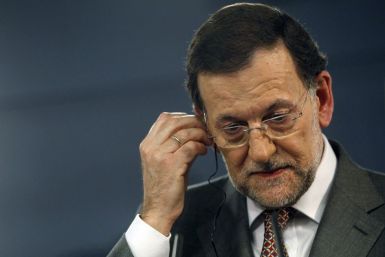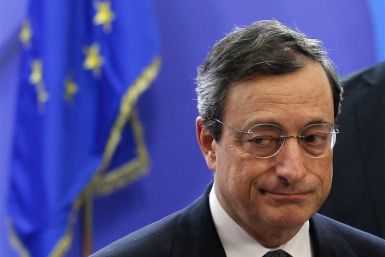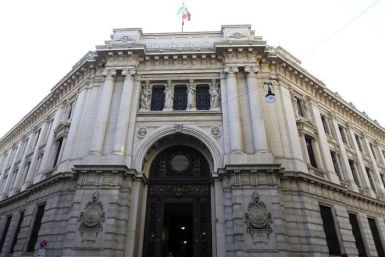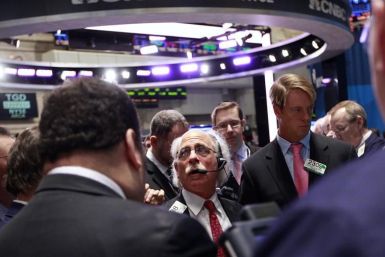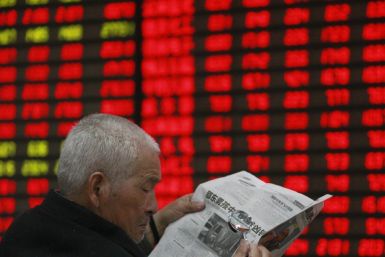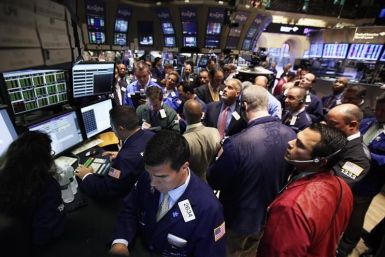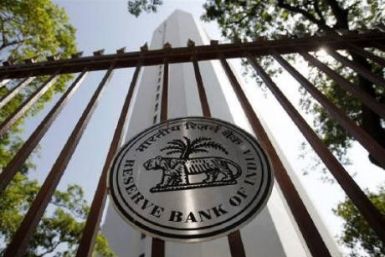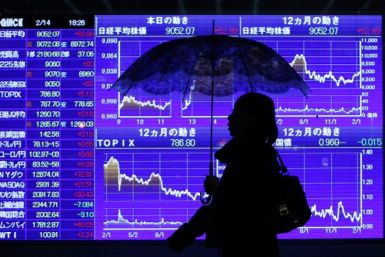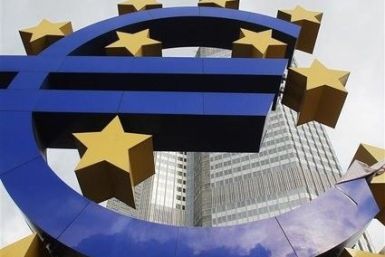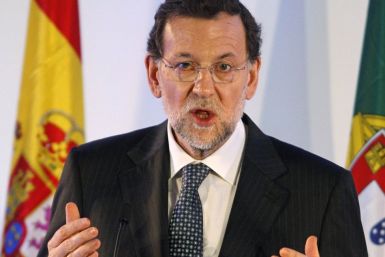Japan's Nikkei 225 Stock Average rose Wednesday but maintained a cautious tone as investors have concerns of the persisting debt crisis looming over the euro zone.
The European Union's ?100 billion ($126 billion) bailout of Spanish banks may have, at least temporarily, saved those institutions. But the rescue is being judged a failure by the markets, as it appears to have seriously damaged the government's ability to borrow from international creditors, something a country running on deficit financing for the foreseeable future is vitally dependent on.
Developments in Greece and Spain could lead first to rating reviews and then to rating actions on all 17 countries in the euro zone, Moody's Investors Service announced Friday.
Spanish officials appeared hesitant to recognize the reality of their country's situation on Saturday as the nation agreed to accept as much as ?100 billion ($125 billion) in a bailout of its cash-strapped financials sector by one or both of the euro zone's rescue funds.
Without a stronger effort by the central banks -- in the form of a coordinated quantitative easing measure to correct the ailing European banking system -- the global economy (at best) will only limb along.
Italian banks appear close to joining Spanish banks as the euro zone's latest contribution to the financial world's endangered species list.
Hong Kong shares advanced Thursday, following solid gains on Wall Street overnight on hopes that major central banks including the US Federal Reserve might act to tackle deteriorating global economic conditions.
Futures on major U.S. indices point to a slightly higher opening Thursday ahead of the report on weekly jobless claims and Fed Chairman Ben Bernanke?s congressional testimony.
Asian markets rose Thursday amid hopes that the U.S. Fed would announce another round of monetary easing and European policy makers would take concrete measures to tackle the debt crisis looming over the euro zone.
Spain will attempt Thursday to sell as much as 2 billion euros ($2.5 billion) of bonds at interest rates expected to be dangerously high.
Resisting crisis pressure, the European Central Bank did as expected and held rates steady at 1.0% overnight.
The European Central Bank on Wednesday left its benchmark interest rate steady for the sixth consecutive month, keeping pressure on European politicians to more forcefully address the continent's deteriorating finances.
Futures on the major U.S. indices point to a higher opening Wednesday ahead of a report on the Federal Reserve's Beige Book and the European Central Bank's (ECB) monthly rate-setting meeting.
Asian markets rose Wednesday amid positive economic data from the U.S. and the G7 finance ministers' decision to work closer together to tackle the euro zone economic crisis.
India's BSE Sensex rose Wednesday following positive cues from Asian markets and the rupee gaining.
Japan's Nikkei 225 Stock Average rose Wednesday amid positive US economic data and the G7 meeting's promise of a closer collaboration to tackle economic problems.
Asian shares nudged up Wednesday but were capped by concerns that Europe's financial strains could intensify without a global response, as Spain warned that it was being shut out of credit markets.
The European Central Bank is expected to hold back from policy moves when it meets on Wednesday, instead urging governments to address the euro zone's crisis, but it could indicate a readiness to cut interest rates as early as next month given a weakening economy and Spain's banking troubles.
German Chancellor Angela Merkel appears to have altered dramatically her long-held opposition to euro zone nations sharing responsibility for the debts of the monetary union's most troubled banks.
The euro zone avoided recession with zero growth in the first quarter, but it seems to have run out of luck. Recent data out of the single currency bloc has led economists to conclude with confidence that a recession is looming and the European Central Bank may not act Wednesday.
Spanish Prime Minister Mariano Rajoy proposed on Saturday that the 17 countries in the euro zone create a common fiscal authority, with each surrendering a significant amount of its national sovereignty to send a signal to financial markets about the certainty of their single-currency experiment.
World Bank president Robert Zoellick is calling for the issuiing of a supranational euro bond that would be backed by credit guarantees from stronger euro zone economies while providing cheaper funding to struggling ones.


